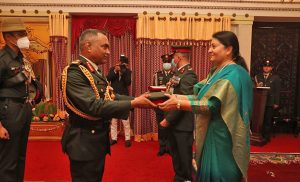Kathmandu, November 12
The years-old border dispute between Nepal and India suddenly escalated in November last year after India issued a new political map incorporating the disputed Kalapani-Limpiyadhura region. The bilateral ties continued to turn sourer after Nepal retaliated by publishing its new map incorporating the area in May this year.
The developments pushed the immediate neighbours away from the talk table.
However, apparently, after concerned stakeholders realising the importance of dialogues to solve outstanding issues between them, it seems both the sides are willing to resume communications on all fronts.
Recent visits of chiefs of Indian foreign intelligence agency Research and Analysis Wing and Indian Army are evidence of that willingness. Moreover, it has been learned that Indian Foreign Secretary Harsh Vardhan Shringla is coming to Nepal later this month whereas Nepal’s Foreign Affairs Minister Pradeep Kumar Gyawali will pay a visit to New Delhi after that.
Analysts in Kathmandu and New Delhi say these dialogues will not result in a permanent solution to the border dispute anytime soon. However, they are positive developments for both sides.
Nihar R Nayak, a research fellow at Manohar Parrikar Institute for Defence Studies and Analyses in New Delhi, tells Onlinekhabar, “These visits will provide an opportunity for leaders and officials of both sides to discuss misunderstandings. They will also talk about the border dispute.”
For Vijay Kant Karna, Nepal’s former ambassador to Denmark, the Nepal-India relations have returned to their normal position as of pre-November 2019 now. “Recent developments have brought two countries back to the talk table. Now, time has come for both the countries to review their mistakes, correct them and move ahead.”
Karna says keeping the relations ‘frozen’ was not in favour of either of the countries.
Echoing Karna, geopolitical analyst Geja Sharma Wagle says, “Beginning the conversation does not mean finding a solution. But still, ceasing the blame game and reestablishing the dialogue is positive.”



























